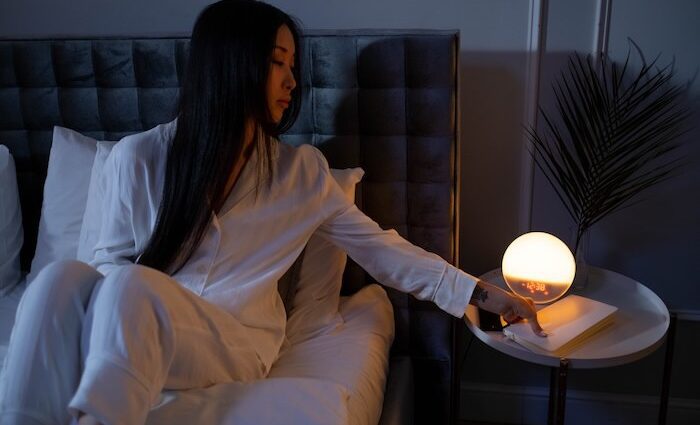Could you use some sleeping tips?
You already know that sleep is important to your health and wellness. (Read more about that in our “get your creative brain to sleep” post.)
Sleep is critical to your writing life too. If you’re struggling to get enough, you may find yourself feeling more distracted, irritable, and unable to meet your daily writing quota. Your creative brain may be less responsive, leaving you facing writer’s block.
I’ve offered some good sleeping tips in other posts, including this one, but this time, I’m focusing on some more unusual tips that will help you boost your creativity—and get some more sleep—at the same time.
Sleeping Tip 1: Tell Yourself a Story
The next time you find it difficult to get to sleep, sit up in bed and tell yourself a story. Try to avoid using a cell phone, tablet, or computer as the light will stimulate your brain to wake up. But by all means, feel free to use a pad of paper and pencil to jot down your ideas as you go.
Try to think back to when your parents told you bedtime stories, or maybe you told them to your children. Now it’s time to tell yourself a story. Make it different from any story you’re currently working on, to properly challenge your creative muse.
Imagine a brand new children’s story, short story, or play you might write for a fun mystery night theater. Force yourself to follow good story structure. The story should have a beginning, middle, and end, a clear protagonist and antagonist, and a climax.
Yes, there is a slight danger that you’ll get so into your story that it will keep you awake rather than help you fall asleep. The good news is that you’re a writer. If that happens, at least you’ll have gotten some writing done while you were struggling with insomnia!
But most likely as you challenge your brain, your natural fatigue will take over and you’ll fall asleep. You can always pick up the story from where you left off the next night!
2. Write Down “Why” You Write
What is your deepest reason for devoting so much time to this craft?
The next time you’re having trouble getting to sleep, get out your pad of paper and pen and answer this question: “Why do I write?”
Once you have that answer down, write your answer to the next question, which is “And why is that?” Then answer that question again and again until you’ve found the core reason for writing.
Here’s an example:
Q: Why do you write?
A: Because I enjoy it.
Q: Why do you enjoy it?
A: Because it’s fun for me.
Q: Why is it fun for you?
A: Because I like exploring the lives of my characters.
And you keep going. Keep digging. Find out the real reason why you write.
In a 2017 study, researchers found that people who felt they had a sense of purpose in life—a real reason to get up in the morning—were more likely to sleep better at night.
Writing is likely part of your life’s purpose. Writing down “why” you’re doing it can help reconnect you to that purpose, which may help you sleep better in the future.
Sleeping Tip 3: Listen to Another Story
I talked previously about how listening to audiobooks can teach you a lot about writing. If you don’t have time in your regular schedule, how about allowing one to lure you off to sleep?
Of course, this isn’t the time to be listening to anything that might disturb you or keep you up. Go for something calming and relaxing. The app “Calm” has some great options that are designed to help you drift off.
You can find more options on YouTube.
Sleeping Tip 4: Read a Printed Story
Reading from a tablet, phone, or computer can expose you to light—particularly blue light—that can disturb your sleep rhythm later. Effects may include a decrease in the quality of your sleep, feeling sleepier in the morning, and suffering from brain fog throughout the day.
In 2015, researchers compared the effects of reading a regular book with those of reading an electronic book in the hours before bedtime. They found that those reading ebooks took longer to fall asleep, had reduced evening sleepiness, and were more likely to feel sleepy the next morning than those who read a regular printed book.
Reading from a print book is one of the best ways you can fall asleep. (Find out more about why print books are healthier for you.) You’ll be getting some reading in, and the action of your eyes moving across the page naturally leads to tiredness.
5. Practice Your Synonyms
You’re a wordsmith. Can’t sleep? Try coming up with all the relaxing words you can think of. Use it as a writing test. Challenge yourself. Once you’ve come up with all the simple words, try for the more complex ones.
Once you’ve done all that, if you’re still awake, try coming up with techniques that your characters use to relax. Maybe one uses meditation or a unique pre-bed ritual. Another may prefer a hot bath or journaling exercise.
What about your antagonist? He or she may choose less healthy ways to relax like downing some whiskey or smoking a cigar, but maybe you can build a fun contrast by having your nasty bad guy enjoy aromatherapy to relax.
Write down some of your ideas if you like. Hopefully, by the time you’ve created a good long list, you’ll have discarded your notebook in favor of some shut-eye.
Do you have any helpful sleeping tips for writers?

